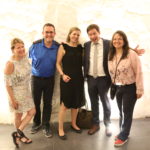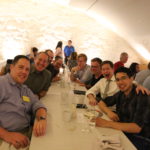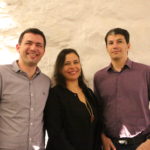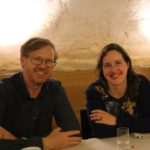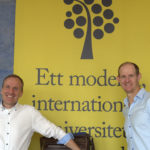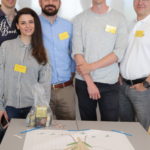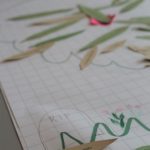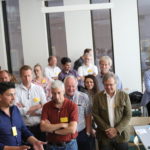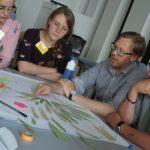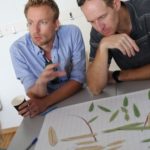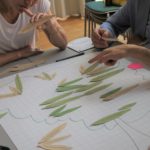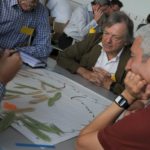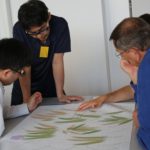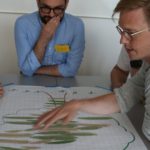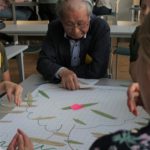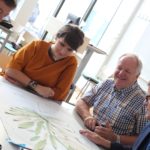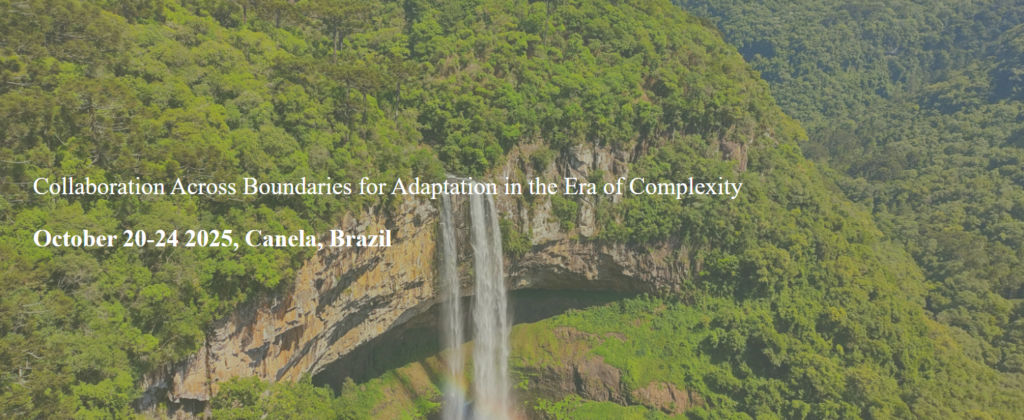
Joint 11th biannual REA Symposium and 14th annual Resilient Health Care Society Meeting | 20-24 October, 2025 | Brazil
We are delighted to announce the call for papers for the Joint 11th Biennial Resilience Engineering Association (REA) Symposium and the 14th Annual Resilient Health Care Society (RHCS) Meeting, with the theme Collaboration Across Boundaries for Adaptation in the Era of Complexity
When? 20th to the 24th of October, 2025 (Young Talent Workshop: 20 October 2025).
Where? Canela, Brazil. Canela is a cozy small town in the Gaucho Highlands in the southernmost Brazilian state of Rio Grande do Sul, and is a traditional venue for large and small conferences. Canela and the whole nearby region are well-known as a major touristic hub owing to attractions such as wineries, hiking, canyons, forests, amusement parks, delicious food, chocolate, and hospitality.
For details on submissions, deadlines, and paper formatting templates, visit the Symposium website:
For the Young Talent program call for applications go to our dedicated page:
And until then, you can check out the preliminary proceedings from the 10th RE Symposium here. The final version of the proceedings is on its way.
Past Symposia

26-30th June 2023 | Sophia Antipolis, France
Resilience at frontiers, frontiers of resilience
For more information, programme and registrations please visit the symposium website
You may also browse the draft programme here
21-24th June 2021, France
15TH CONFERENCE ON NATURALISTIC DECISION MAKING
AND
9TH SYMPOSIUM ON RESILIENCE ENGINEERING
Bouncing forward from global crises and challenges
Rethinking and guiding adaptations based on Resilience Engineering and Naturalistic Decision Making
AND
9TH SYMPOSIUM ON RESILIENCE ENGINEERING
Rethinking and guiding adaptations based on Resilience Engineering and Naturalistic Decision Making

“We do not know the story, even less the end of the story. What do you do in the middle of the story?”
Global crises and their reverberations and challenges, impressively exemplified by the COVID-19 pandemic, are calls for society to bounce forward. Adaptation needs are everywhere, at systemic, organisational, and societal levels, as well as at individual and community levels. It is urgent to rethink and guide innovative forms of adaptation. Together, Resilience Engineering (RE) and Naturalistic Decision Making (NDM) represent a rich source of inspiration for such adaptations.
The core of NDM is expertise in understanding and improving decision-making by practitioners in all its complexity, when things must be settled in an environment without certainty, without solid data, without magic algorithms, when it is necessary to arbitrate between conflicting goals, to choose even between diverse solutions, when time and resources are lacking.
RE is interested in understanding and improving the capacity of complex sociotechnical systems and organisations to cope with the variability of the world, including its extremes and its randomness, to adapt, thrive, take advantage of it and evolve.
NDM and RE, each at their level and on different scales, deal with arbitration, with trade-offs between knowledge and uncertainty, expertise and politics, understanding and action, specialisation and diversity, thoroughness and efficiency, maneuver and margins for maneuver, recurring and exceptions, thought and unthinkable.
The Naturalistic Decision Making movement and the Resilience Engineering Association have decided to open the border between the decision-making landscape and the country of resilient trade-offs, and to make their next biannual meetings (15 th NDM and 9 th RE) a joint event. Naturally, they decided that such a historical event deserved better than a traditional meeting.
Consequently, they foresee diverse opportunities around the world, both academic and non-academic, each of them possibly comprising working groups, regional workshops, webinars, publications for the general public, and the like. These opportunities will be progressively structured forming the content of the joint event. The event will probably be a NDM/RE discussion track, an industrial safety track, an academic young talents track, and some others. And all these tracks will get together in June 2021 during the joint meeting, and will then be able to continue their journey towards their own outcomes (publications, guidance material, methods…).
This call is therefore a call to join and propose your contributions. These can be a classic paper or presentation, but also a work in progress, a think tank, an element of a research program, a case study, a tool under development… The themes are wide open, not limited to the Covid-19 crisis – even though it presents a fantastic staging of resilience issues, and not limited to NDM’s and RE’s doxas – while they represent together a rich source of inspiration. Let’s be brave and dare to be simple: the framing question is “outmaneuvering complexity”.
The 2021 Joint meeting will be an opportunity to share all these contributions, under a format that cannot be defined yet, considering the uncertainties related to transportation, communication, and accommodation.
On the 21st-24th June 2021 in Toulouse, France, a few of us met in Toulouse while others gathered in Colombus, Ohio. Throughout these days close to 350 people met online and around the world across so many different time zones.
June 2019
8th REA Symposium
Embracing resilience – Scaling up and Speeding up
The 8th Resilience Engineering Association’s Symposium on Resilience Engineering was hosted at Linnaeus University, Kalmar, Sweden, 24th -27th June 2019.
We work in a complex world of changing pressures, relationships, interdependencies, and novel possibilities. Past performance and safety are no guarantee of continued success. What matters more and more is the ability to cope with the unexpected, and adapt to keep pace with change. As ever more organizations globally recognize and try to apply resilience engineering, we need to develop how we support the scaling up and speeding up of the adoption and application of these ideas.
Many organizations today have begun to recognize the limits of compliance — a model of success embodied in anticipation, plans, procedures, quality indicators, and automation. This model cannot effectively accommodate variability, disturbances, uncertainties or novelty, which is increasingly obvious in an interconnected and turbulent world. Compliance-oriented systems can experience surprising, sudden collapses in performance, such as dramatic service outages, despite a backdrop of improving safety and quality indicators. Instead of trying to eradicate the unexpected, today’s organizations need to ‘expect surprises’ and to prepare for unexpected challenges and opportunities — in other words, they need to be poised to adapt in a world where surprising challenges and innovative opportunities are normal.
But crucial questions remain in the quest to speed up and scale up the adoption of resilience principles. What are the ‘measures’ that are going to replace< traditional ones? How do we know whether teams, systems and organizations are resilient? What are regulators and auditors going to have to look for in order to assess resilience? What accounts for the differences in scaling up and speeding up the adoption of resilience ideas across different domains? How can organizations respond to residual failures and breakdowns without resorting to componential explanations and increased compliance demands?
Workshops and tutorials
The symposium program hosted a series of workshops aiming at presenting and discussing in depth several topics in the field of Resilience Engineering and related knowledge domains and disciplines.
Symposium
The symposium featured a mixture of plenary and parallel sessions, as well as think tanks.
Young Talents Programme
The Young Talent Program is a one day workshop for Masters and PhD students within the field of Resilience Engineering. During the workshop, successful applicants had the opportunity to present their work to, and receive feedback from, prominent researchers in the field.
Social programme
The conference dinner took place at Kalmar Castle.
REA8 will present an inspiring mixture of keynote speakers from academia and industry.
Monday, June 24, 4:30-5:30 pm

David Woods, Ohio State University, United States of America
Tuesday, June 25, 9-9:30 am

Lars Axvi, Chalmers University of Technology, Sweden
Tuesday, June 25, 2:45-3:15 pm

Erik Hollnagel, University of Jönköping, Sweden
Wednesday, June 26, 8:30-9 am

Tarcisio Abreu Saurin: Resilient healthcare: a theoretical and practical perspective of the state-of-the-art
Wednesday, June 26, 3:30-4 pm

Milena Studic: Disaster avoided: Was it due to system resilience, robustness or pure chance?
Thursday, June 27, 8:30-9 am

Helen Alm: Resilience in a world of barriers, an industry update on Resilience within the Swedish nuclear industry.
Please visit the Young Talent webpage for detailed info on the submission process, and previous editions.
Young Talents Program Committee
Young Talents Chair: Sudeep Hegde
- Riccardo Patriarca, University of Rome, Italy
- Jop Havinga, Griffith University, Brisbane, Australia

